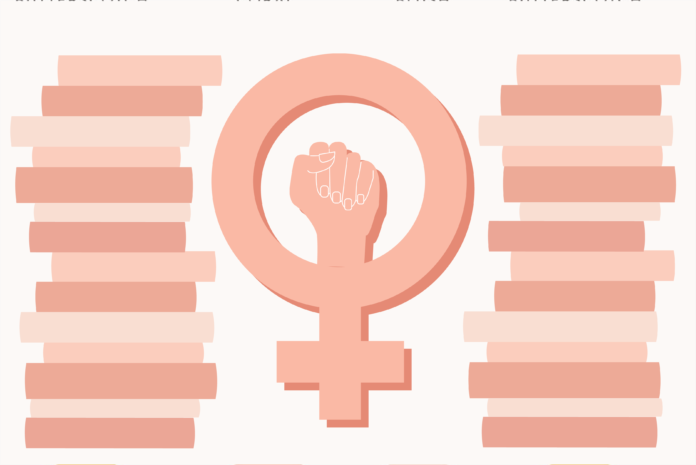An overview of female empowerment in music
Music has long been a platform that allows women to express themselves and have their voices heard. Artists can write about the struggles of womanhood and engage an audience who wants to shout out the same things they do.
Before women were outright combatting patriarchal behaviors with their lyrics, their participation in music was a form of empowerment. Starting in the 1930s, women like Ella Fitzgerald were writing and performing jazz music on their own, unassociated with other male musicians. By composing and performing in a male-dominated arena, they were making space for themselves and other women to contribute their musical creativity and powerful words.
In the early 1960s, women sang songs that would become female anthems for decades to come. One of the earliest examples of this was Lesley Gore’s “You Don’t Own Me” (1963). Although written by two men, the protest against the male objectification of women through the voice of a young woman resonated with others across the U.S. Similarly, the song “Respect,” originally released by Otis Redding, was popularized by Aretha Franklin in 1967. Hearing a woman’s voice demanding respect made it a powerful tune, and women everywhere related to the sentiment behind the song.
Although women had been writing, singing and performing for a millenia, the rise of deliberately feminist music didn’t come until the 1970s. Female punk artists brought about a new wave of female protest in music. The anti-establishment nature of punk fostered an environment for women to break free from the status quo and follow their own rules.
The music of singers like Patti Smith and Siouxsie Sioux is authoritative and loud, defying standards of femininity at the time and creating the opportunity for women to create without social constrictions. This attitude contributed to the formation of the “riot grrrl” movement in the ‘90s, a feminist punk movement credited by some as the catalyst of third-wave feminism. Popular all-women bands included Bikini Kill, Sleater-Kinney, Heavens to Betsy and The Third Sex.
The ‘90s brought about a wave of empowered women unafraid to do things on their own. In the mid 1990s, Destiny’s Child came to be an iconic trio of women who sang about a range of topics. Songs like “Bills, Bills, Bills” and “Independent Women” were central players in the surge of feminism in music. These women didn’t need a man to fulfill either monetary or other needs and they were comfortable singing about it.
The Spice Girls were another quintessential ‘90s girl band that wasn’t afraid to say what they wanted — literally. “Wannabe,” a classic ladies sing-along, explains what they need from someone in a relationship, and how they aren’t willing to settle for less.
Arguably the greatest female anthem of all time, Beyoncé’s “Run the World (Girls)” is a tribute to all women and the power they possess. Another classic of hers, “***Flawless,” includes a quote from Nigerian author Chimamanda Ngozi Adichie’s TED Talk about feminism and society’s unrealistic expectations of women. From Destiny’s Child to today, Beyoncé’s feminist lyrics have raised awareness, educated and inspired women everywhere.
A special type of women’s anthem are those made just to make you feel good. At a time when the pressure is on to do everything right, while looking good, these songs are especially empowering. “Video” by India.Arie is about loving yourself unconditionally, and Lizzo makes you forget your sorrows and feel like a bad bitch in “Good as Hell.”
After years of women keeping their mouths shut about injustices, songs about real, painful issues women face have been released as well. Lady Gaga’s “Til It Happens to You” is a powerful and emotional telling of her and many others’ experience with sexual assault. P!nk’s “F**cking Perfect” is an encouraging tune, paired with a graphic music video that depicts a young girl struggling through adolescence. These artists acknowledge the realities of womanhood, even those that are difficult to talk about, letting everyone know that these problems exist and should not go unnoticed.
Women have also presented empowerment by owning their sexuality in music. In “God is Woman,” Ariana Grande sings about the seemingly spiritual power women have, especially in a physical sense. Summer Walker’s “Girls Need Love,” takes it further than just acknowledging her sexuality, addressing how even if men are the only ones allowed to talk about it, women have a sex drive, too.
Whether about relationships, adversities or self-love, these women’s anthems have contributed to the promotion of feminism in the music world and beyond. In a culture where young women are rarely taught to feel empowered, this type of song is an influential medium for celebrating women and all that they do.
Written By: Allie Bailey — arts@theaggie.org




